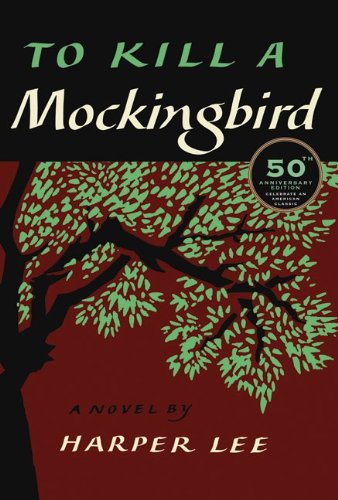All Nonfiction
- Bullying
- Books
- Academic
- Author Interviews
- Celebrity interviews
- College Articles
- College Essays
- Educator of the Year
- Heroes
- Interviews
- Memoir
- Personal Experience
- Sports
- Travel & Culture
All Opinions
- Bullying
- Current Events / Politics
- Discrimination
- Drugs / Alcohol / Smoking
- Entertainment / Celebrities
- Environment
- Love / Relationships
- Movies / Music / TV
- Pop Culture / Trends
- School / College
- Social Issues / Civics
- Spirituality / Religion
- Sports / Hobbies
All Hot Topics
- Bullying
- Community Service
- Environment
- Health
- Letters to the Editor
- Pride & Prejudice
- What Matters
- Back
Summer Guide
- Program Links
- Program Reviews
- Back
College Guide
- College Links
- College Reviews
- College Essays
- College Articles
- Back
To Kill a Mockingbird by Harper Lee
Random House’s Webster Dictionary defined pride as “conceit; arrogance.” In Harper Lee’s novel, To Kill a Mockingbird, one of the main characters finds himself defending a black man going against a white man and his daughter, this white man is Bob Ewell. Bob Ewell finds himself almost in trouble, trying to hurt the people who did not reward him for his wrong doings. But he eventually dies when his pride gets in the way.
Bob Ewell thought it would be easy, he thought putting a black man in jail for something he didn’t do would be the easiest thing any man had done before. After beating his daughter on several occasions, he needed an excuse for her injuries, and Tom Robinson fit the mold. When in court, Atticus Finch begins to question Mayella Ewell. Atticus asks “Miss. Mayella” how her father treats her, she responds by saying, “he does tolllable, `cept when –“ she pauses. Atticus asks “Except when?’ Mayella responds, “Except when nothing`.” Her father readjusts his chair when he thinks his plan is going to be foiled, and soon moves back to his original position and cocky smile, showing how conceited he is.
Bob Ewell ends up winning his case, but is still bitter towards the people who were up against him in court. So bitter in fact, that he started seeking revenge. Bob first found Atticus Finch, at the post office, and spat in his face. All Atticus had to say about the incident was, “I wish Bob Ewell wouldn’t chew tobacco.” Bob then goes to the Judge’s house and tries to break in. Soon after that, Bob had the pleasure of knowing that Tom Robinson was dead. All of Bob’s attempts at at revenge show how he wants to defend his pride.
Bob Ewell made one final attempt at seeking revenge. He decided that the Town of Maycomb’s Halloween pageant would be the perfect time to seek revenge on Atticus Finch. Bob’s attempt was rooted in his drinking. When Bob only finds Atticus` children, he decides that the kids are the next best thing to Atticus. As Bob moved towards the children, the youngest of the two, thought “He was running, running toward us with no child’s step.” Bob was obviously dead set on getting to those children and defending his pride to everyone whoever crossed him. The actions of Bob Ewell during his last and final revenge attempt killed him. His pride caused a struggle that ended with a loss.
Random House’s Webster Dictionary defines pride as “Conceit; arrogance.” In harper Lee’s novel, To Kill a Mockingbird, a main character finds himself going against a crazed hillbilly, Bob Ewell. Bob Ewell almost loses his case, seeks revenge, and ultimately dies. He did what he thought would make him look good, and not make him lose his pride.
Similar Articles
JOIN THE DISCUSSION
This article has 0 comments.

